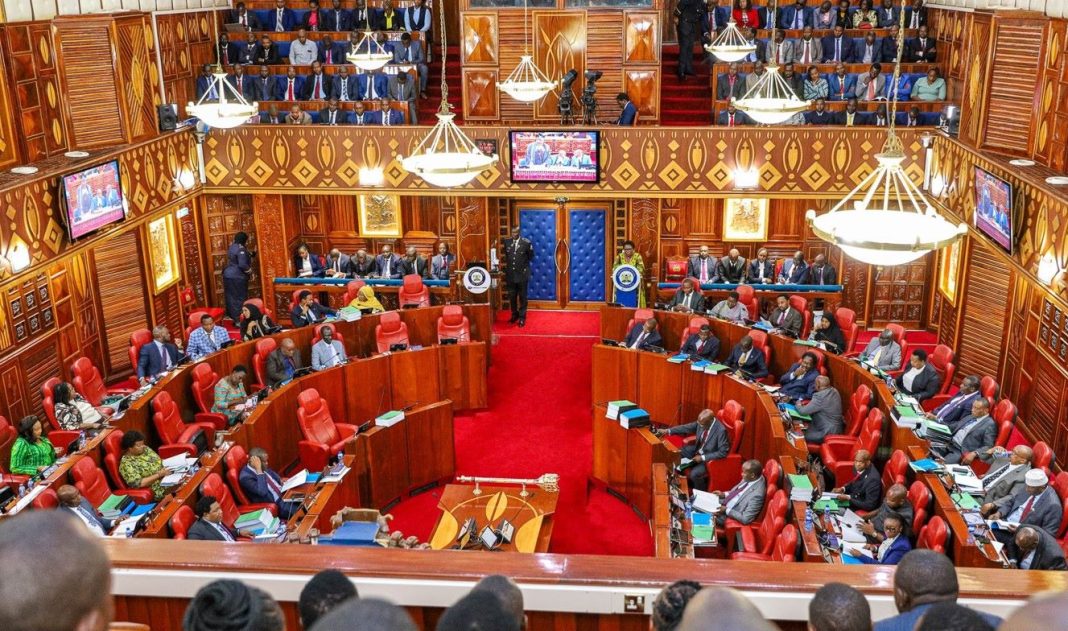The Senate is pushing for amendments to the law that will clearly define the roles of deputy governors in a bid to end persistent power struggles in counties.
The Senate Devolution and Intergovernmental Relations Committee, chaired by Wajir Senator Mohamed Abass, has proposed changes to the County Governments Act requiring governors to assign specific responsibilities to their deputies.
“The County Governments Act, Cap 265, be amended to impose a mandatory requirement on the Governor to assign specific responsibilities to the Deputy Governor,” the committee report states.
Currently, Section 32(3) of the Act merely states that a governor may assign duties, a loophole that has seen some deputies handed substantive portfolios while others remain idle.
Senators argue that the lack of consistency has wasted resources, undermined service delivery, and left deputies earning hefty salaries with little to show.
“Owing to the fact that the Office of the Deputy Governor is financed by public resources, there must be a deliberate assignment of responsibilities to ensure optimal utilization,” the report notes.
The committee acknowledged that while some counties have given deputies CEC-level portfolios, making this compulsory could raise accountability issues since deputies are constitutionally mandated to act as governors in the absence of the county boss.
The push to amend the law follows a petition by Japheth Makokha, Executive Director of Tripple The Impact CBO, who argued that some governors deliberately sideline their deputies to protect their own political influence.
“This usually comes at the expense of the citizens who need the bringing of development closer to them through effective and efficient service delivery,” Makokha told senators.
Disputes between governors and deputies have become common in recent years, including high-profile fallouts such as Siaya’s William Oduol and Governor James Orengo, Kisii’s Robert Monda and Governor Simba Arati, and the impeachment of former Machakos Deputy Governor Bernard Kiala.







online betting with paypal winnersbet
References:
activeaupair.info
online australian casino paypal
References:
https://findjobs.my/companies/online-pokies-paypal-deposit-i-piece-web-design/
This hassle-free setup lets you focus on enjoying the games and exploring
exciting promotions tailored to enhance your gaming journey.
Thousands of titles, from slots to live play To get them, all you need to do is play your favourite games on the platform.
Low-priced games that combine slots and bingo.
WinSpirit Casino maintains a comprehensive table game selection encompassing traditional casino standards and specialized
variations. WinSpirit Casino provides detailed information regarding Return to
Player (RTP) rates for transparency, with most slots offering industry-standard percentages between 95-97%.
Notable titles include Book of Dead, Gonzo’s Quest, Starburst, and Mega Moolah, representing
industry-standard games with established popularity.
WinSpirit Casino regularly updates its game collection with new games,
while retaining popular and tried-and-true titles. Game loading times are consistent across
the platform, with minimal lag and performance issues during long gaming sessions.
This provider diversity contributes to a comprehensive gaming experience with consistent performance standards.
References:
https://blackcoin.co/black-jack-strategy-poker/
No, only one Richard casino promo code can be applied per
deposit. Never chase losses with bonus deposits – if you’re experiencing a losing streak, take a break rather than depositing for another bonus.
Avoid bonus buy features during wagering – these often don’t contribute towards requirements or may be completely prohibited.
Focus on high RTP slots above 96% for the best mathematical chance of
retaining bonus funds while meeting wagering requirements.
Don’t rush through welcome packages – space out deposits to maximise playing time
and learning opportunities. Many Richard casino tournaments allow participation with
existing account funds, offering cash prizes and free spins without requiring fresh deposits.
The several payment choices of Richard casino withdrawal show its goal to suit a worldwide audience with different tastes.
Richard Casino presents a simple and all-encompassing payment system with several deposit and withdrawal choices.
Getting extra benefits at this casino is easy if you have
the right special codes. Don’t forget to use the Richard Casino bonus
codes to claim these incredible offers! If you don’t
have an account yet, you can easily sign up and start playing!
References:
https://blackcoin.co/video-poker-tutorial/
Die Plattform beinhaltet tägliche Turniere mit Preisen von 500 Euro und 1500 Freispielen. EvoSpin Casino,
eine neue Seite von Dama N.V., bietet einen 100% Willkommensbonus und jeden Freitag einen 55%
Reload-Bonus. Für die ersten fünf Einzahlungen gibt
es ein Bonus-Paket von bis zu 1000 Euro und 100 Freispielen.
Die Plattform bietet ein VIP-Programm, Reload-Boni und
Freispiele für Einzahlungen und unterstützt sowohl FIAT- als auch Krypto-Währungen für Einzahlungen und Abhebungen. Umfasst über 70 andere Marken,
und Run4Win Casino begrüßt neue Spieler mit einem Bonus-Paket von bis zu 400 Euro
und 300 Freispielen. Neue Spieler können vier
Willkommensboni erhalten, das gesamte Bonus-Paket umfasst 850 Euro und 270 Freispiele.
Für High Roller bietet das Casino einen 125% Bonus bis zu
1000 Euro und 125 Freispiele. Wild Tokyo Casino bietet mehr als 20 Spielanbieter,
Jackpot-Spiele, Live-Casino und Tischspiele für die Spieler.
Just Casino bietet eine Vielzahl von kostenlosen Einzahlungsmethoden mit einer
Mindesteinzahlung von 20 Euro.
References:
https://online-spielhallen.de/cocoa-casino-mobile-app-ihr-mobiler-spielspas-im-uberblick/